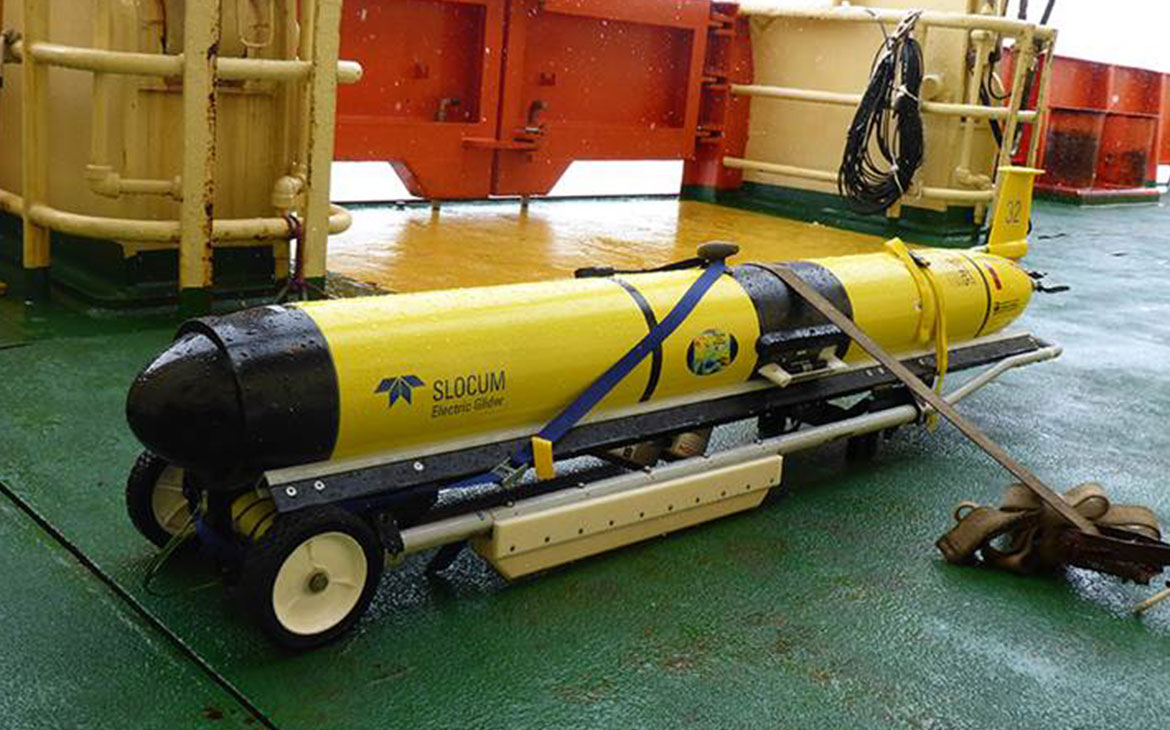On January 9, 2018, a post-doctoral researcher and undergraduate student of Dr. Grace Saba (Assistant Professor, Rutgers University, Center for Ocean Observing Leadership) deployed a Teledyne Webb Slocum Glider with an integrated ASL Environmental Sciences Inc. Acoustic Zooplankton Fish Profiler (AZFP) 38, 125 and 200 kHz instrument in the Terra Nova Bay (Ross Sea, Antarctica). The deployment lasted 3 weeks and the glider was recovered on January 31, 2018.
The purpose of this deployment was to obtain mesoscale and sub-mesoscale measurements of hydrographic processes and simultaneous biological distributions and abundance. From the resulting data, the researchers will examine the interactions between multiple trophic levels (phytoplankton, zooplankton and fish) and their relationships to the physical hydrographic driving forces such as sea ice and currents.
A key component to this investigation is the AZFP’s ability to differentiate key species within this important Antarctic food web. Species of specific interest include various copepods, crystal krill (Euphausia crystallorophias), and Antarctic silverfish (Pleuragramma antarcticum). The glider was also instrumented with a CTD, a WET Labs BB2FL ECO puck to measure phytoplankton biomass and an Aandera Optode dissolved oxygen sensor.
To validate glider acoustic-based species, size and abundance data, a coordinated ship-based acoustic and net sampling program was conducted in close proximity to the autonomous glider.
Open accessible, automated hydrographic data produced during this project is available through RUCOOL (Rutgers University Center for Ocean Observing Leadership) and THREDDS (Thematic Real-time Environmental Data Distribution Services). The production of consistent, vertically-resolved, high resolution glider-based acoustic measurements will define a successful outcome of this project that will pave the way for cost-effective, automated examination of entire food webs and ecosystems in regions all over the global ocean and serve a wide range of users including academic and government scientists, ecosystem-based fisheries managers, and monitoring programs.
Article Credit: https://www.marinetechnologynews.com/news/glider-based-ecosystem-study-557071

